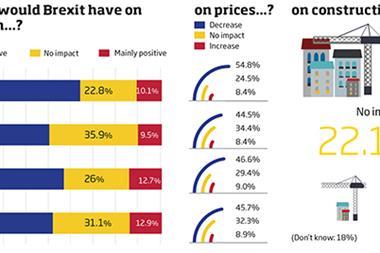Every day I read in the newspaper that leaving the EU will cause a plague of frogs… while staying in will potentially cause World War Three.

I can’t be the only one who no longer believes a word they hear from either side.
For a start, there are the obvious distortions. The ‘leave’ campaign claims on the side of its big red battle bus that we send £350m a week to Brussels, which it says could be used to build schools and hospitals.
This is just not true. We do send £350m, but we get £230m of it back in the form of EU grants. A big chunk of it supports our farmers under the Common Agricultural Policy, and the day after Brexit those payments will still need to be made.
As the late Denis Healey remarked: “A billion here, a billion there, and soon you’re talking quite serious money.” £120m a week is a lot of money (although it pales into insignificance compared with the amount we spent bailing out the banks), but it’s not £350m.
Equally ill-judged, in my view, was the prime minister’s assertion that the UK leaving the EU would make Europe a less safe place. It is true that over seven decades the EU and its predecessors have been massively important in returning Greece, Portugal and Spain from dictatorship and ensuring that democracy is properly embedded in the former Soviet bloc, which is now part of the EU.
But in recent years the burden of euro membership has caused tensions between Germany, which has benefited for 20 years from a massively undervalued currency, and those same countries - Greece, Portugal and Spain - where anti-German sentiment is now as strong as at any time since the end of the Second World War.
EU is not a logical place
I wonder if anyone takes any notice of what the IMF, the World Bank or our own chancellor says anymore.
How can a group of economists who patently cannot predict six months ahead seriously predict the impact of Brexit on the average household after 15 - yes, 15 - years? That’s simply not a credible forecast.
But neither can the ‘leave’ campaigners tell us what will happen two years after a decision to quit, not least because no country has ever left before. Logically there should be minimal change. Free trade would be in the interests of both parties.
But the EU is not a logical organisation; it is a political organisation, and the desire to punish the Brits as a warning to others might just prevail even if it damages both sides.
Confused? You may well be, and by 23 June you’ll be even more confused than now. This relentless barrage of assertion and counter-assertion has a serious consequence. It means the vote is more likely to be on grounds of sheer sentiment. You either broadly approve of the idea of us staying in the EU or you don’t. I have a strong suspicion the average Brit is a small ‘c’ conservative who, just as in the 2014 Scottish independence referendum, will know their heart says ‘leave’ but their head says ‘stay’.
The polls are showing both sides pretty even, within the normal margin of error. Have the pollsters made the same mistake they made at the general election? Will a plague of locusts follow the frogs? Only another six weeks to find out.
Steve Norris is chairman of the National Planning and Infrastructure Association and of Soho Estates






























1 Readers' comment